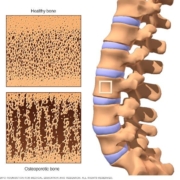MSK Health for Women: Unique Considerations and Challenges
Musculoskeletal (MSK) health is crucial for everyone, but women face unique challenges throughout their lives. Hormonal shifts, pregnancy, and even footwear choices can impact bone density, joint stability, and overall MSK well-being. Understanding these factors empowers women to take proactive steps towards better musculoskeletal health and a more active, pain-free life.
Hormonal Influences on MSK Health
Hormones play a important role in women’s MSK health. Estrogen, in particular, helps maintain bone density. Fluctuations in estrogen levels during puberty, pregnancy, and menopause can increase the risk of certain conditions.
Puberty: Rapid growth spurts during puberty can make young women more susceptible to stress fractures and overuse injuries.
Pregnancy: Hormonal changes during pregnancy increase joint laxity (looseness), making women more prone to injuries like sprains and strains. Weight gain also adds stress to joints, particularly in the back and pelvis.
Menopause: The significant drop in estrogen after menopause accelerates bone loss,increasing the risk of osteoporosis and fractures.
What you can do:
Maintain a healthy weight: A healthy weight reduces stress on joints.
Engage in regular weight-bearing exercise: Activities like walking, jogging, and dancing help build and maintain bone density.
Get enough calcium and vitamin D: These nutrients are essential for bone health. Talk to your doctor about supplements if needed.
Osteoporosis: A Silent Threat
Osteoporosis, a condition that weakens bones, is more common in women, especially after menopause. This weakening makes bones more likely to break,even from minor falls.
Preventing Osteoporosis:
Nutrition: Consume a calcium-rich diet including dairy products, leafy green vegetables, and fortified foods.
exercise: Weight-bearing and resistance exercises are crucial for building and maintaining bone mass.
Bone Density Testing: Talk to your doctor about bone density testing, especially after menopause.
Medication: If necessary, your doctor may prescribe medication to help prevent or treat osteoporosis.
Common MSK Conditions in Women
Several MSK conditions are more prevalent or present differently in women.
Osteoarthritis: This degenerative joint disease often affects the hands, knees, and hips in women. Hormonal changes and prior joint injuries can contribute to its growth.
Rheumatoid Arthritis: This autoimmune disease, where the immune system attacks the joints, is two to three times more common in women than men.
Fibromyalgia: This chronic pain condition, characterized by widespread musculoskeletal pain, fatigue, and sleep disturbances, is more common in women.
Carpal Tunnel Syndrome: This condition, causing numbness and tingling in the hand and wrist, is more frequent in women, possibly due to hormonal factors and repetitive hand movements.
Managing these conditions:
Early Diagnosis: Seek medical attention if you experience persistent pain, stiffness, or swelling in your joints.
Physical Therapy: Physical therapy can help improve joint function, reduce pain, and increase strength and flexibility.
Occupational Therapy: Occupational therapy can definitely help you adapt daily tasks to minimize stress on affected joints.
Medication: Your doctor may prescribe medication to manage pain and inflammation.
Pregnancy-Related MSK Issues
Pregnancy brings about significant changes in a woman’s body, including increased weight, shifted center of gravity, and hormonal fluctuations. These changes can lead to various MSK issues.
Back Pain: the added weight and change in posture during pregnancy can strain the back muscles.
Pelvic Girdle Pain: Hormonal changes loosen the ligaments supporting the pelvic joints, causing pain and instability.
Carpal Tunnel Syndrome: Fluid retention during pregnancy can compress the median nerve in the wrist, leading to carpal tunnel syndrome.
Tips for managing pregnancy-related MSK issues:
Maintain good posture: Practice good posture to minimize strain on your back.
Wear supportive shoes: Cozy, supportive shoes can definitely help alleviate back and foot pain.
Prenatal exercises: Gentle exercises, such as prenatal yoga or swimming, can definitely help strengthen muscles and improve flexibility.
Seek professional help: Consult a physical therapist or chiropractor specializing in prenatal care if you experience persistent pain.
Taking Charge of Your MSK Health
Women can take proactive steps to protect their musculoskeletal health throughout their lives. By understanding the unique challenges they face and adopting healthy habits, women can reduce their risk of developing MSK conditions and enjoy a more active, pain-free life.
Additional Resources:
The Arthritis Foundation
The National Osteoporosis Foundation
The American Academy of Orthopaedic Surgeons
Remember to consult with your healthcare provider for personalized advice and treatment options. This facts is for educational purposes only and does not constitute medical advice.








